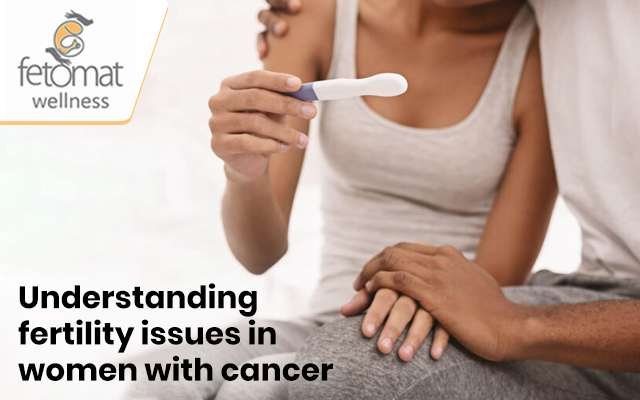Can cancer treatments affect your fertility? Answers an infertility specialist
Whenever patients undergo cancer treatment, they doubt whether the various treatments will affect their ability to conceive. It is true that getting cancer treatment can affect your fertility, either temporarily or permanently. An infertility specialist in Kolkata explains how the various procedures to cure cancer can harm your fertility.
Which cancer treatment can impact fertility? Answers an infertility specialist
Fertility issues in women develop either from the disease itself or its treatment. It mainly affects fertility in two main ways, stated an infertility doctor.
- Damage to the ovaries, fallopian tubes, uterus and cervix.
- Damage to the organs involved in hormone production.
Any damage to the ovary can decrease the ovarian reserve, thereby affecting the total number of eggs a woman is born with. Once these eggs get damaged, they can’t be replaced. Loss of healthy eggs in the ovaries causes early menopause and infertility.
Now, the question is which treatments for cancer can harm your fertility. Let’s know which of the cancer treatments can have fertility-related side effects.
- Chemotherapy: This procedure involves the use of high-chemical drugs like Busulfan, Carmustine, Chlorambucil, Cyclophosphamide etc, which can increase your risk of fertility issues.
- Radiation therapy: This therapy can affect the following body parts, which may affect fertility.
- Uterus
- Ovaries
- The pituitary gland
- The pelvis
- The abdomen
- Surgery: Surgery to kill the cancer cells can remove the following reproductive organs and cause infertility.
- The uterus
- One or both the ovaries
- The cervix
When should I consult an infertility specialist?
Women after cancer treatment may have their menstrual cycle as usual, but it does not confirm that you are fertile. According to the opinion of an infertility doctor in Kolkata, some women experience early menopause which can cause permanent infertility, whereas some women can have missed periods for a time being which may later become normal.
But it is to be noted that even if women have their periods during and after cancer treatment they still have the chance of lowered fertility or early menopause. Moreover, if you are above 35 years or had higher doses of chemotherapy or radiation therapy, it might take longer to restart your menstrual cycle.
A single cancer therapy session can damage your fertility. Hence if you are planning to undergo cancer treatment, it is advised to consult an infertility specialistand preserve your fertility.
What are the options for fertility preservation? Explains an infertility specialist
The American Society of Clinical Oncology (ASCO) recommends all cancer patients discuss with their doctor the fertility preservation options before beginning their treatment. Some of the possible fertility preservation options, as suggested by experts of the best infertility treatment centre are as follows:
- Egg freezing: In this procedure, the woman’s eggs are collected and frozen in the laboratory to be implanted later on.
- Embryo cryopreservation: During this procedure, the unfertilized eggs are harvested and then fertilized by sperm. The resulting embryo is then frozen to be used after the treatment.
- Radiation shielding: Here, small lead shields are placed over the ovary during radiation therapy to reduce the harmful effect of radiation exposure to the ovaries.
- Ovarian suppression: This treatment lowers the production of estrogen hormone in the ovaries which stops the menstrual cycle. As a result, the function of the ovaries is suppressed and eggs are protected during cancer treatments.
- Ovarian tissue preservation: This procedure involves removing or freezing the ovarian tissue before beginning with the treatment of cancer. After the patient gets treated, your infertility doctor will transplant the frozen or removed tissue.
Conclusion
If you are concerned that your cancer treatment can affect fertility, consult an infertility doctor and consider the various fertility preservation options before starting your treatment.
Patient review
“It was a nice experience for me at the first time the doctor was helpful so we’re the people around and the best part was the hassle free reports in just minutes.Thank you.”
Tadeeb Faiz
Watch the video here: https://fb.watch/njFCjjmOKR/

